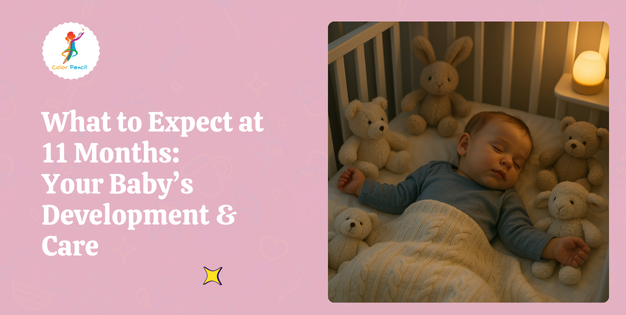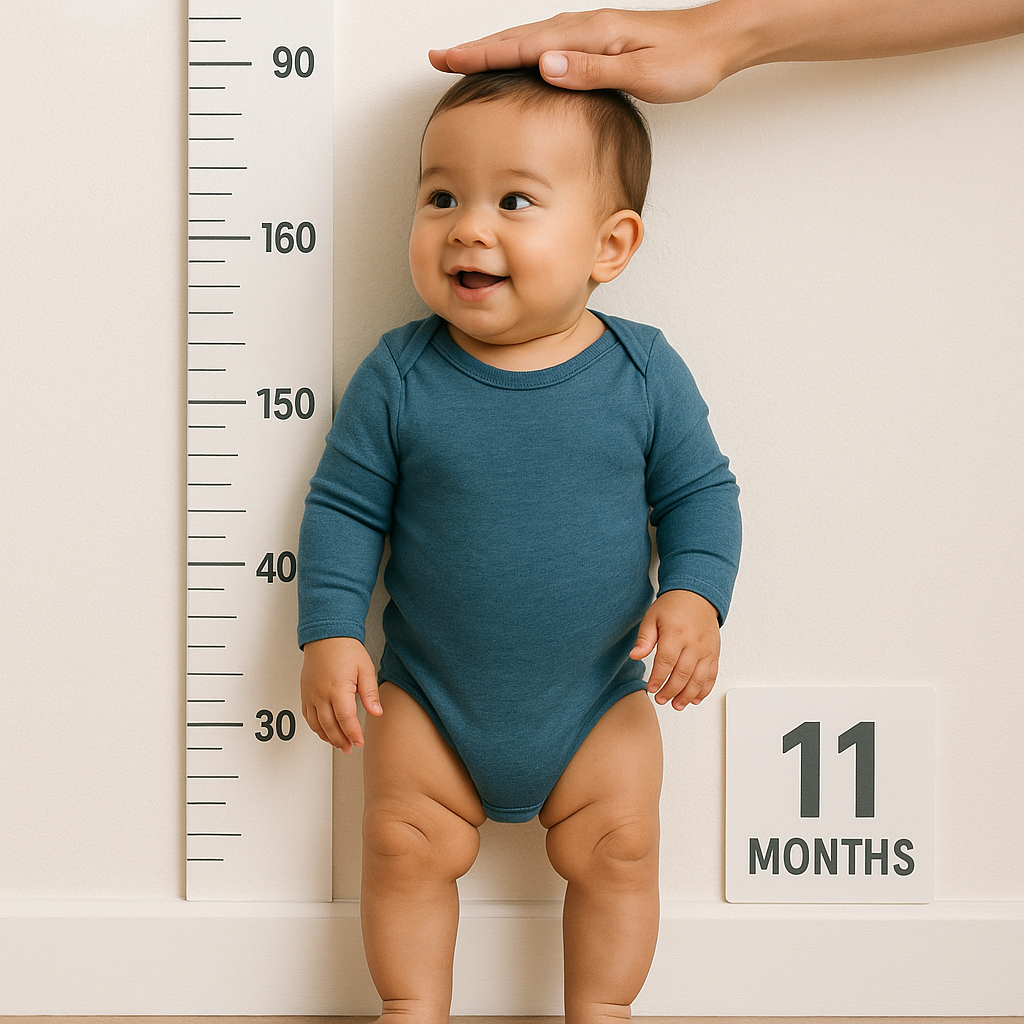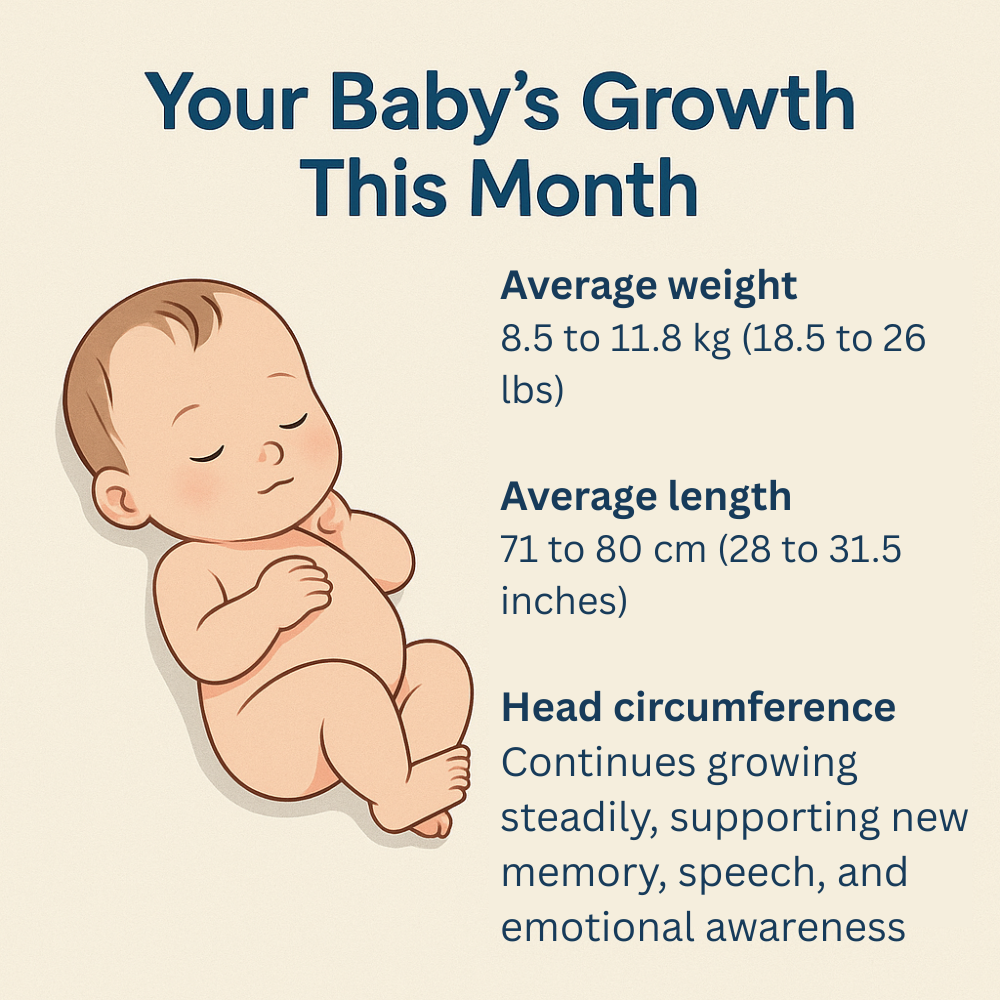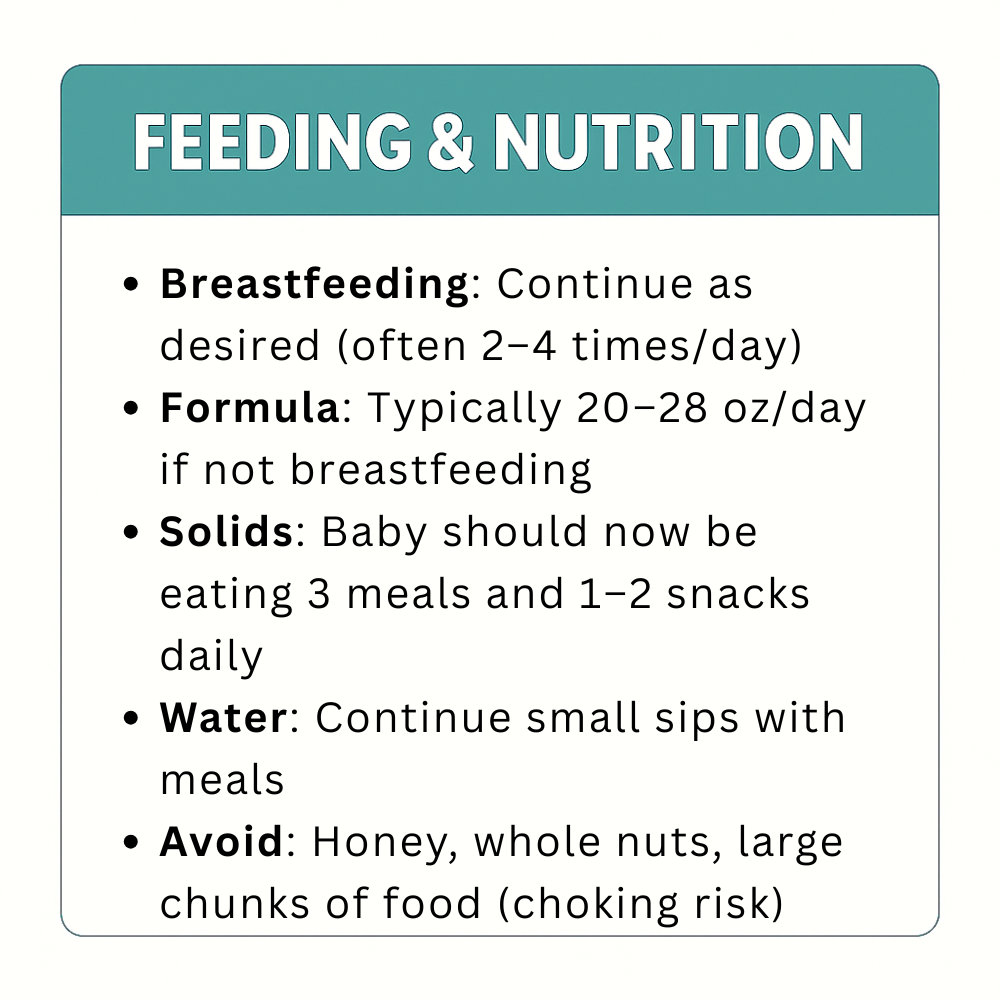Milestones, Growth, Sleep, Feeding, and Practical Tips for the Eleventh Month
At 11 months, your baby is almost a toddler—and they’re acting like it! You’ll likely see a growing sense of independence, improved balance and coordination, and a deeper understanding of language and social cues. They’re curious, expressive, and possibly just a few steps away from walking. Emotionally, your baby is building trust, showing preferences, and becoming more connected to family routines.
Here’s what to expect during your baby’s eleventh month.
🍼 Your Baby’s Growth This Month
- Average weight: 8.5 to 11.8 kg (18.5 to 26 lbs)
- Average length: 71 to 80 cm (28 to 31.5 inches)
- Head circumference: Continues growing steadily, supporting new memory, speech, and emotional awareness
Reminder: Physical growth may appear to slow now, as babies expend more energy moving and exploring.
👶 Developmental Milestones
Your 11-month-old may:
- Cruise confidently along furniture or while holding your hands
- Stand alone briefly or longer with improved balance
- Attempt first unassisted steps
- Point to objects to express interest or make choices
- Say simple words with intention (“mama,” “dada,” “uh-oh”)
- Follow one-step instructions like “Give me the toy”
- Understand object permanence—they’ll look for hidden items or toys they dropped
🎯 Firsts to Watch For
- Standing unassisted or walking short distances
- Pointing at objects, people, or pictures in books
- Responding to familiar songs or routines with movement
- Vocal protests when upset or redirected (early emotional expression!)
- Stronger reactions to strangers or unfamiliar environments
🍽 Feeding & Nutrition
- Breastfeeding: Continue as desired (often 2–4 times/day)
- Formula: Typically 20–28 oz/day if not breastfeeding
- Solids: Baby should now be eating 3 meals and 1–2 snacks daily
- Offer a variety of textures and let your baby self-feed more
- Safe finger foods: soft fruits, cooked pasta, toast strips, tofu, cheese cubes
- Water: Continue small sips with meals
- Avoid: Honey, whole nuts, large chunks of food (choking risk)
Tip: Let your baby join family mealtimes—they learn by watching you eat.
🌙 Sleep Patterns
- Total sleep: 12 to 14 hours per day
- Naps: 2 naps per day (morning and afternoon)
- Night sleep: 10 to 12 hours is typical, with fewer interruptions
- Some babies may show signs of preparing to drop the second nap, though most keep it until 15–18 months
Tip: Stick with your bedtime routine—it helps ease transitions and reduces separation anxiety.
💉 Vaccines & Health Checks
- No standard vaccines at 11 months
- If missed earlier, your baby may receive:
- Flu shot (if in season)
- Catch-up vaccines (check with your pediatrician)
- Use this time to prepare for the 1-year check-up with a list of questions or concerns about walking, language, sleep, or feeding
🤒 Common Health Notes
- Teething continues—expect drooling, gnawing, and occasional fussiness
- As mobility increases, minor tumbles become more common. Keep baby-proofing top of mind.
- Increased exposure to germs through exploration or social play—stay on top of hygiene, especially hand-washing
🔔 Parental Care Reminders
- Offer encouragement—not pressure—for walking and talking
- Maintain boundaries with patience and consistency as testing behavior begins
- Prioritize simple play and reading—your presence is the most powerful “toy”
- Take breaks when needed. This stage is demanding physically and emotionally!
Feeling Overwhelmed? Let’s Talk! Join Our Parent Forum and Get Expert Advice & Support!
✅ Pro Tips for Parents This Month
- Practice standing and walking with push toys or sturdy furniture
- Name objects during play to build vocabulary
- Encourage pointing and mimicking through interactive books
- Offer choices (“Do you want the banana or the toast?”) to support decision-making and autonomy
Final Thoughts
At 11 months, your baby is preparing to take their first literal—and figurative—steps toward toddlerhood. This stage is full of action, emotion, and rapid learning. It’s also a time when your guidance, patience, and presence are helping shape your child’s sense of safety, curiosity, and joy.
Visited 41 times, 1 visit(s) today





